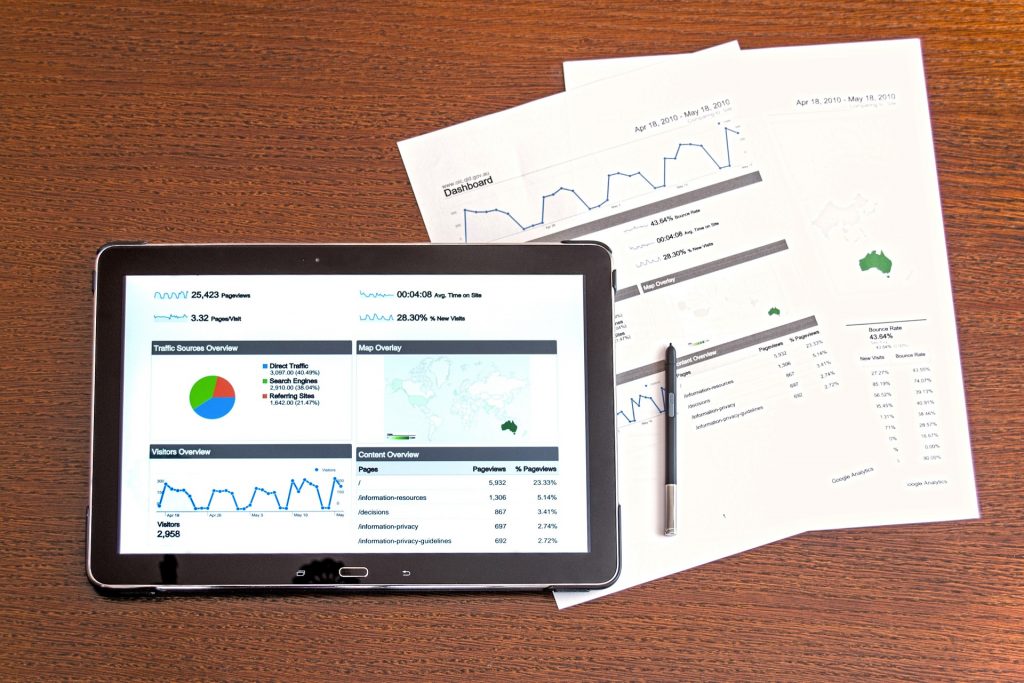Get the Results You Deserve with PPC Optimisation
When it comes to digital marketing, Pay-per-click (PPC) advertising is one of the most effective ways to drive traffic to your website and generate leads. But with so many businesses investing in PPC advertising, it can be challenging to stand out from the competition and get the results you deserve. That’s where PPC optimisation comes in. In this article, we will explore everything you need to know about PPC optimisation, including its benefits, strategies, and best practices.

What is PPC Optimisation?
PPC optimisation is the process of improving the performance of your PPC campaigns by refining and fine-tuning various elements, such as ad copy, keywords, and targeting settings. The ultimate goal of PPC optimisation is to increase the return on investment (ROI) of your PPC campaigns by driving more conversions at a lower cost per acquisition (CPA).
Benefits of PPC Optimisation
PPC optimisation can offer a variety of benefits for businesses looking to get the most out of their digital marketing efforts. Some of these benefits include:
- Improved ROI: By optimising your PPC campaigns, you can drive more conversions at a lower cost per acquisition, ultimately improving your ROI.
- Better Targeting: PPC optimisation allows you to fine-tune your targeting settings, ensuring that your ads are reaching the right audience.
- Higher Quality Score: By improving the relevance and performance of your ads, you can increase your Quality Score, which can lead to better ad positions and lower costs.
- Increased Brand Visibility: PPC optimisation can help you to stand out from the competition and increase your brand visibility.
PPC Optimisation Strategies
Now that we’ve covered the benefits of PPC optimisation let’s take a look at some of the strategies that you can use to optimise your PPC campaigns.
Conduct Keyword Research
Keyword research is a critical first step in any PPC campaign. By conducting thorough keyword research, you can identify the most relevant and high-performing keywords for your business.
Refine Your Ad Copy
Your ad copy is the first impression that potential customers will have of your business, so it’s essential to ensure that it’s high-quality and engaging. Consider testing different headlines, ad copy, and calls to action to see what resonates with your target audience.
Fine-tune Your Targeting Settings
Your targeting settings can have a significant impact on the performance of your ads. Consider narrowing your targeting by location, device type, and demographics to ensure that your ads are reaching the right audience.
Optimise Landing Pages
Your landing pages are where potential customers will land after clicking on your ads. To improve conversion rates, ensure that your landing pages are optimised for the user experience and that they offer a clear call to action.
Monitor and Analyse Performance
Regularly monitoring and analysing the performance of your PPC campaigns can help you to identify areas for improvement and fine-tune your strategies accordingly.
PPC Optimisation Best Practices
To get the most out of your PPC campaigns, it’s essential to follow some best practices. Here are a few to keep in mind:
- Set Clear Goals: Before launching your PPC campaigns, it’s important to set clear and measurable goals, such as the number of conversions you want to achieve, or the cost per acquisition you’re willing to pay.
- Test, Test, Test: A/B testing is a powerful tool that can help you to identify what works and what doesn’t in your PPC campaigns. Consider testing different ad copy, landing pages, and targeting settings to see what drives the best results.
- Focus on Quality Score: Quality Score is an important metric that can impact the performance of your PPC campaigns. To improve your Quality Score, focus on improving the relevance and performance of your ads.
- Keeping an eye on your competition is an essential aspect of PPC optimisation. By monitoring your competitors’ ad copy, targeting settings, and landing pages, you can gain valuable insights into what’s working in your industry and adjust your strategies accordingly.
- Don’t Forget Mobile Optimisation: With more and more people using mobile devices to browse the web, it’s essential to ensure that your PPC campaigns are optimised for mobile devices. Consider creating mobile-specific ads and landing pages to ensure the best user experience on all devices.

FAQs
Q: What is the difference between PPC and SEO?
A: PPC and SEO are two different digital marketing strategies. PPC involves paying for ads to appear in search results, while SEO focuses on optimising your website and content to appear in organic search results.
Q: How much does PPC advertising cost?
A: The cost of PPC advertising can vary widely depending on factors such as industry, competition, and targeting settings. However, you can set a budget for your PPC campaigns to ensure that you don’t overspend.
Q: How long does it take to see results from PPC campaigns?
A: The timeline for seeing results from PPC campaigns can vary depending on factors such as your industry, competition, and targeting settings. However, you can typically expect to see some results within the first few weeks of launching your campaigns.
Q: Can I do PPC advertising myself, or should I hire a professional?
A: While it’s possible to do PPC advertising yourself, it can be challenging to get the best results without the right knowledge and experience. Hiring a professional can help to ensure that your campaigns are optimised for the best performance.
Q: How do I measure the success of my PPC campaigns?
A: There are several metrics that you can use to measure the success of your PPC campaigns, such as conversion rate, click-through rate, and cost per acquisition. By regularly monitoring and analysing these metrics, you can fine-tune your campaigns for the best results.
Conclusion
PPC optimisation is a critical aspect of digital marketing that can help businesses to get the results they deserve from their PPC campaigns. By following best practices and implementing effective strategies such as keyword research, ad copy refinement, and landing page optimisation, businesses can improve their ROI and drive more conversions at a lower cost per acquisition. By keeping an eye on the competition and regularly monitoring and analysing performance metrics, businesses can stay ahead of the curve and achieve long-term success with their PPC campaigns.
I am a freelance PPC expert and can conduct a competitor review to kick off your PPC strategy, get in touch today.








